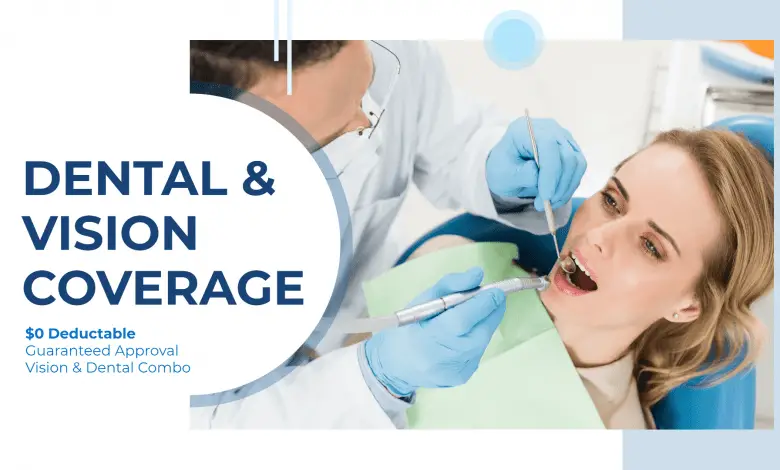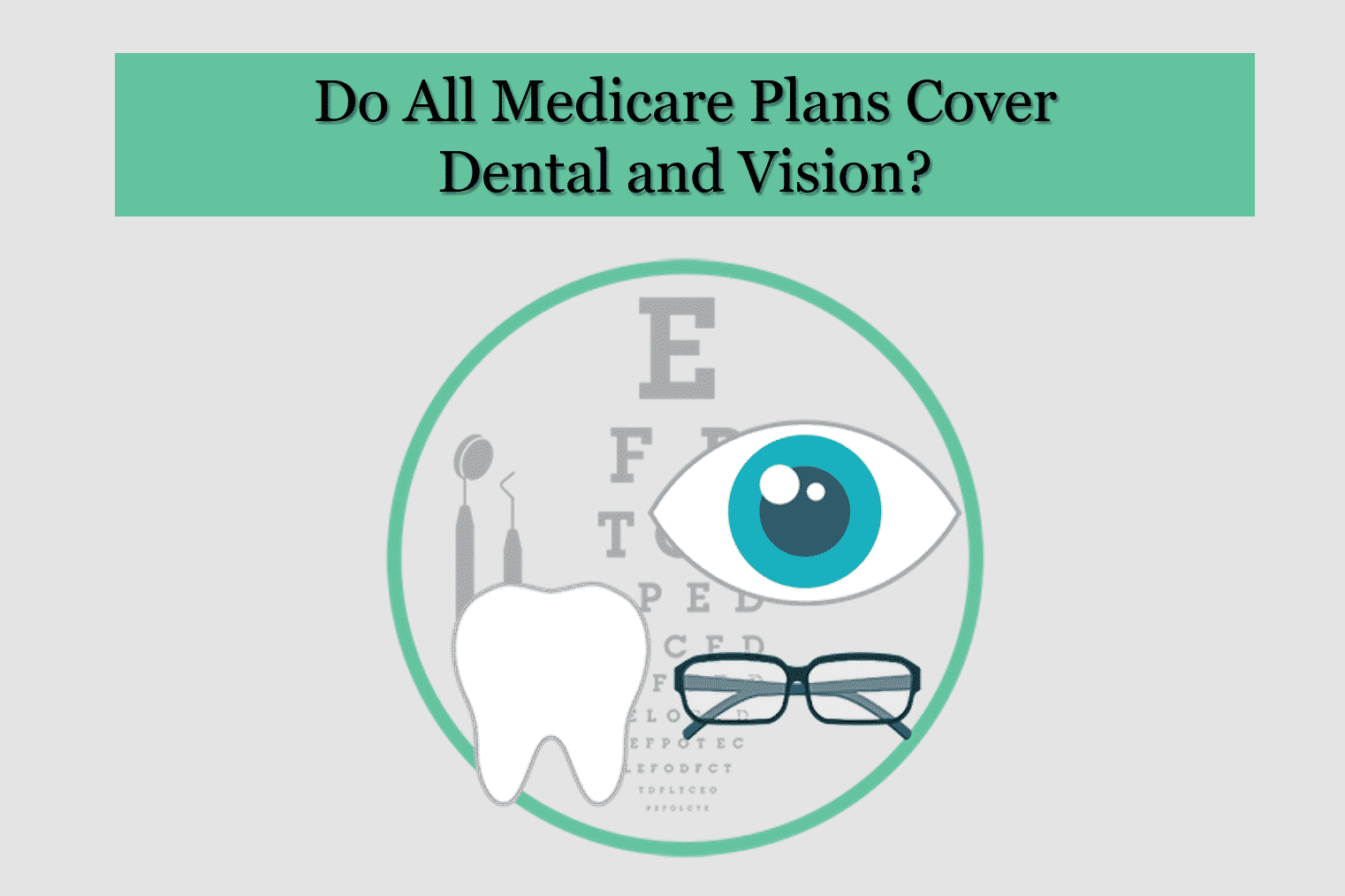A Guide To Medicare Vision Coverage
Everyone 60 years of age and older should have an eye exam every single year, according to the American Optometric Association . This is extremely important for this particular segment of the population because the AOA says many conditions affecting older adults tend to have no early warning signs whatsoever.
Some of the links on this page may link to our affiliates. Learn more about our ad policies.
Do I Need Vision Insurance With Medicare
While Medicare and Medicare supplement plans does cover your vision if there is something medically wrong, such as cataracts, it does not have coverage for a standard eye exam or corrective lenses. Below are just a few reasons to consider getting a separate vision plan.
- The cost for regular eye exams Getting an eye exam on a regular basis does more than evaluate your vision since regular eye exams can also detect many health issues even before symptoms appear. Without some form of vision insurance, your eye exams will be paid out-of-pocket. Seniors covered under Medicare should know that eye exams and eyeglasses are not covered unless you already have diabetes or other specific health issues.
- Vision insurance costs more than an eye exam For young adults, this may likely be the case since an occasional eye exam will likely cost less if you pay out-of-pocket versus the premiums you pay for insurance. But what happens when you need eyeglasses or other preventive care? This is when vision insurance can rescue your checkbook from charges you werent expecting, especially if youre a senior.
- You have one set of eyes get the most out of them Having healthy eyes is more than just about seeing clearly. Poor eye health can lead to headaches and other issues that can easily impact your effectiveness at school, work, your hobbies, and your overall health.
Medicare does not cover routine vision care. Get the coverage you need with a VSP individual vision plan.
Options For Vision Health Insurance
Vision medical care coverage can be significant for people who require regular eye tests or wear contacts or prescription eyeglasses.
The coverage gap for senior citizens who no longer receive vision insurance from their employers can be shocking. Fortunately, there are several alternatives you can choose to supplement your vision coverage as a member of Medicare.
Also Check: Which Of The Following Is True Regarding Medicare Supplement Policies
Does Medicare Cover Vision And Dental
Original Medicare does not cover routine dental or vision care. There are certain circumstances under which Original Medicare may provide some coverage for dental or vision care in an emergency setting or as part of surgery preparation.
However, you may be able to receive routine dental and vision coverage by enrolling in a Medicare Advantage plan that includes dental and vision benefits.
Original Medicare Dental Coverage

Original Medicare covers limited dental care. It does not cover most dental care or supplies, such as:
- Dental exams
- Dentures
- Dental plates
However, Medicare Part A will typically provide some coverage if you receive any dental services in a hospital as an inpatient.
- For example, Part A may cover the cost of a tooth extraction that is necessary to prepare your jaw for radiation treatment.
- Or if you are admitted to the hospital with severe injuries to your mouth and emergency care is required, Part A might again provide limited coverage.
“Part A can pay for inpatient hospital care if you need to have emergency or complicated dental procedures, even though the dental care isnt covered,” according to Medicare.gov.
If you need dental coverage for routine dental care services and supplies, you may want to enroll in a Medicare Advantage plan that includes that benefit.
Read Also: Are Chemotherapy Drugs Covered By Medicare
Eye Exams For Macular Degeneration
Medicare Part B may cover specific screening tests. It includes the treatment of certain eye disorders and diseases, such as age-related retinopathy, which causes vision loss. You would be liable for paying 20% of the costs for these vision care services, in addition to the copayments and deductibles.
General Fund Revenue As A Share Of Total Medicare Spending
This measure, established under the Medicare Modernization Act , examines Medicare spending in the context of the federal budget. Each year, MMA requires the Medicare trustees to make a determination about whether general fund revenue is projected to exceed 45 percent of total program spending within a seven-year period. If the Medicare trustees make this determination in two consecutive years, a “funding warning” is issued. In response, the president must submit cost-saving legislation to Congress, which must consider this legislation on an expedited basis. This threshold was reached and a warning issued every year between 2006 and 2013 but it has not been reached since that time and is not expected to be reached in the 20162022 “window”. This is a reflection of the reduced spending growth mandated by the ACA according to the Trustees.
Read Also: What Is The Medicare Supplement Plan
Medicare Vision Coverage And Medicare Advantage Plans
Medicare Advantage plans are an alternative to the government-run Medicare program and provide another way to get your Original Medicare, Part A and Part B, benefits. Offered through private insurance companies that are contracted with Medicare, these plans are required to cover at least the same level of benefits as Medicare Part A and Part B .
However, one benefit of Medicare Advantage plans is that they may offer coverage that goes beyond Original Medicare, including routine vision or dental, hearing, and prescription drugs. Benefits vary by plan, but Medicare Advantage plans may cover routine eye exams, eyeglasses, contacts, and fittings for frames and contact lenses this coverage would be in addition to all of the preventive or diagnostic vision services and treatment covered under Original Medicare. Since each Medicare Advantage plan may offer different coverage, always check with the individual plan to see if vision benefits are included and what your costs may be. You still need to continue paying your Medicare Part B premium if you sign up for a Medicare Advantage plan, in addition to any premium the plan may charge.
New To Medicare?
Becoming eligible for Medicare can be daunting. But dont worry, were here to help you understand Medicare in 15 minutes or less.
Is Cataract Surgery Covered Under Medical Or Vision
Cataract surgery is covered by health insurance? There is no doubt about it. Eye surgery is often referred to as a Vision Insurance or Major Medical Insurance benefit, but many people are unsure whether this is the case. In general, vision insurance covers routine eye exams, glasses, and contact lenses.
Recommended Reading: Does Medicare Pay For Stem Cell Knee Replacement
Medicare Advantage Dental Coverage
A Medicare Advantage plan with dental coverage may offer benefits that could include:
- Routine dental exams
- Bridges
- Crowns
The specific coverage offered by your plan may not include all of the items listed above. Check with your plan carrier to learn more about the terms of your Medicare Advantage plan dental coverage.
Does Medicare Cover Eye Exams And Glasses
- While Medicare Parts A and B don’t cover routine eye exams vision care, many Medicare Advantage plans may offer vision benefits to include routine eye exams, glasses and contacts.
Medicare is a valuable resource for over 60 million older adults, who depend on the program for most of their medical insurance coverage.
As broad as Medicares coverage can be, many seniors medical needs go beyond what Medicare can provide. In many cases, such as routine vision and eye care, Medicare beneficiaries may have heard there is no coverage available for eyeglasses or contact lenses, vision testing or cataract surgery.
While it is true that Original Medicare not expressly cover vision care, most Medicare enrollees do have some options available to help pay for needed eye exams and care. One option is enrolling in a privately-sold Medicare Advantage plan.
You May Like: What Is The Average Premium For Medicare Advantage Plans
Does Medicare Coverage Include Vision And Dental Care
When it comes to vision and dental care, things can get a bit confusing concerning what coverage you have with your Medicare benefits. Because Original Medicare Part A and Part B provide coverage for care that is medically necessary, they do not help pay for routine vision and dental care such as regular examinations, teeth cleanings or fillings, tooth extraction, eyeglasses or contact lenses.
But not all vision and dental care is routine. Your Original Medicare insurance , or Medicare Advantage Plan , may offer coverage for certain preventive and diagnostic exams, treatments, surgeries, or some supplies. It is important to know what coverage you have regarding your vision and dental care. Having all the information about your Medicare benefits is essential for making the best decisions regarding your health care.How does Medicare cover vision care?
If you require vision care as a medical emergency or due to traumatic injury, Original Medicare Part A covers that care if you are treated as an inpatient in a hospital. You must be formally admitted as an inpatient at a Medicare-approved facility.
Medicare recipients who have Original Medicare Part B have coverage for the following preventive and diagnostic eye exams:
- Eye examinations for diabetics to test for diabetic retinopathy one time per year.
- Glaucoma tests once every 12 months if you are considered at high risk for glaucoma. People at high risk are:
Related articles:
The Basics Of Medicare Advantage

Medicare provides health insurance for eligible seniors in the United States. Coverage is split between several parts, according to what is being covered. Medicare Part A covers the cost for inpatient care given in a hospital setting. There is no premium for Part A coverage, and almost all costs are covered at the point of service. Because of this, Part A is automatically assigned to eligible seniors when they turn 65. Part B covers much of the cost of outpatient care, such as office visits and a limited number of medications. Part D is Original Medicares prescription drug benefit, which pays for most of the cost of self-administered medications.
Recommended Reading: What Is The Advantage Of Medicare Advantage
We Help You Make The Most Of Your Medicare Vision Benefits
Anyone whos retired knows how every dollar counts, but scrimping on important eye exams isnt the best way to save money. Our eye doctors are all licensed optometrists, and our eye care professionals are vision insurance whizzes, ready to help you make the most of your Medicare vision benefits so you can get the eye care you need while taking the least out of your pocket.
Does Medicare Cover Cataracts
Cataracts cloud the lens of the eye, making it difficult to see. Surgery is generally needed to correct the condition, and under original Medicare, you have two choices in this regard.
First, you can receive a basic lens replacement, paid in full by Medicare up to $2,000. Or, you can apply that amount to a replacement lens that not only addresses the cataract, but also corrects for near or farsightedness, and then pay the difference. Additionally, Medicare will pay for a pair of corrective eyeglasses or contacts that are necessary following cataract surgery.
As is the case with other medical procedures, with cataract treatment, youll still be responsible for your Part B deductible and 20 percent coinsurance. If you have a Medigap plan, it can pick up some or all of these out-of-pocket costs. And if youre on Medicare Advantage, your out-of-pocket costs may be lower, depending on what plan you have.
Don’t Miss: Does Medicare Cover Gastric Bypass Revision
Some Tests And Screening
Glaucoma
Medicare Part B covers tests for glaucoma every 12 months if youre considered high risk, meaning:
- You have a family history of glaucoma.
- You are African American and 50 or older.
- You are Hispanic and 65 or older.
If Part B covers your glaucoma test, you must pay your deductible and then pay 20% of the Medicare-approved amount. Depending on where you get the glaucoma test, you may also have a copayment.16
Macular degeneration
Age-related macular degeneration is a condition that affects the part of your retina called the macula. AMD can cause loss of central vision, which makes it hard to focus on objects straight ahead.17
Diagnosing AMD may require a dilated eye exam that allows your doctor to look inside your eye. Other tests to identify AMD include a retinal scan or a test to study the blood vessels in your eye.18
Medicare Part B covers certain tests and treatments if you have AMD. You pay 20% of the Medicare-approved amount for tests and treatments that a Medicare-approved doctor performs after youve met your deductible. If you get AMD testing or treatment in a hospital clinic, you also have a copayment.19
Original Medicare And Cataract Surgery
In addition to covering some of the expenses associated with treating age-related macular degeneration, Medicare covers a specific set of costs related to cataract surgery conducted via traditional surgery or lasers because this is deemed a medically necessary procedure.
Medicare Part B also assists by helping pay for corrective lenses required after cataract surgery in which an intraocular lens is implanted. These corrective lenseswhether eyeglasses or contactsmust be purchased from a Medicare-enrolled supplier in order to be covered either in whole or in part.
To determine what your portion of the expenses would be if you have Medicare Part B and need cataract surgery, Medicare.gov recommends checking with the doctor or medical care facility conducting the procedure. Theyll be able to give you a better estimate based on:
- How much care youll need post-surgery
- Whether the surgery will be conducted on an inpatient or outpatient basis
- Whether youve met your deductible
- If you have any copayments
- If you have any other additional insurance policy that may pick up some or all of the costs
Also Check: How To Qualify For Oxygen With Medicare
What Vision Care Is Covered By Medicare
Medicare Part B helps pay for these medically necessary vision-related services:
- Cataract surgery if its done using lasers or traditional surgical techniques. This procedure replaces your cloudy lens, which is the source of your blurry vision, with a clear artificial lens called an intraocular lens .
- Corrective lenses if you have cataract surgery either one pair of eyeglasses with standard frames or one set of contact lenses from a supplier who is enrolled in Medicare.
- Glaucoma screening test once every 12 months if you are at risk for glaucoma, which is increased pressure within the eyeball that adversely impacts your sight over time. Risk factors for glaucoma are:
- Diabetes
- A family history of glaucoma
- If you are African American and aged 50 or older
- If you are Hispanic and aged 65 or older
Does Medicare Cover Vision And Glasses
Original Medicare does not cover routine vision exams or glasses, but Part B helps cover certain vision-related services if you have eye disease or injury. Medicare Advantage plans, an alternative to Original Medicare, provide the same coverage as Part B, plus more. Most MA plans offer some coverage for routine eye exams and corrective lenses.
Part B vision care coverage is limited to medically necessary treatment for your eye problems. Some of the eye conditions covered by Part B may be a common and normal part of aging and are considered to be Medicare-covered services. MA plans include all Medicare-covered services plus some non-covered Medicare services, such as routine eye exams and financial allowances for corrective lenses.
Also Check: What Is The Difference Between Medicare Advantage And Regular Medicare
Does Medicare Cover Dry Eyes And Allergies
Though having dry eyes wont necessarily impact your vision, it can be a painful condition that affects your quality of life. Medicare will generally cover an exam to diagnose the problem since its not considered routine, at which point youll be on the hook for 20 percent coinsurance on top of your Part B deductible. Your Part D plan might also cover medication to treat the condition, though in some cases, over-the-counter treatment will suffice. Youll get similar coverage with a Medicare Advantage plan, and Medigap can help with your out-of-pocket costs.
Proposals For Reforming Medicare

As legislators continue to seek new ways to control the cost of Medicare, a number of new proposals to reform Medicare have been introduced in recent years.
Premium support
Since the mid-1990s, there have been a number of proposals to change Medicare from a publicly run social insurance program with a defined benefit, for which there is no limit to the government’s expenses, into a publicly run health plan program that offers “premium support” for enrollees. The basic concept behind the proposals is that the government would make a defined contribution, that is a premium support, to the health plan of a Medicare enrollee’s choice. Sponsors would compete to provide Medicare benefits and this competition would set the level of fixed contribution. Additionally, enrollees would be able to purchase greater coverage by paying more in addition to the fixed government contribution. Conversely, enrollees could choose lower cost coverage and keep the difference between their coverage costs and the fixed government contribution. The goal of premium Medicare plans is for greater cost-effectiveness if such a proposal worked as planned, the financial incentive would be greatest for Medicare plans that offer the best care at the lowest cost.
Currently, public Part C Medicare health plans avoid this issue with an indexed risk formula that provides lower per capita payments to sponsors for relatively healthy plan members and higher per capita payments for less healthy members.
- Senate
Recommended Reading: What Age Do You Draw Medicare
